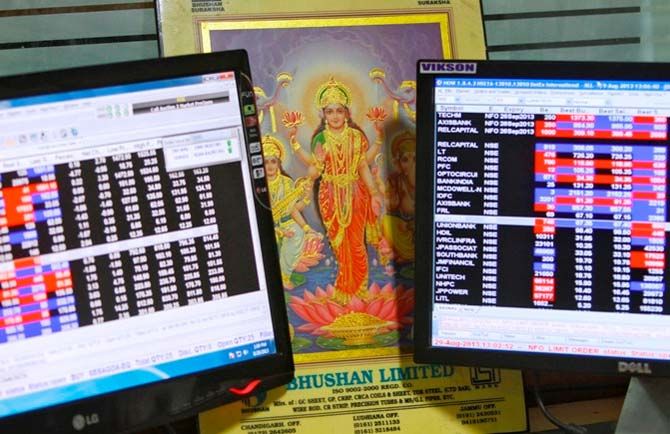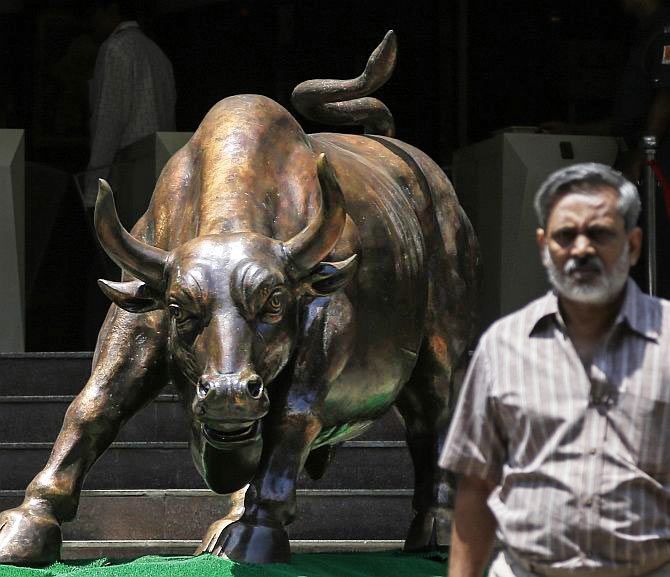
When the stock markets go on a one-way northward trip, making money seems easy. With year-to-date returns of 27 per cent, retail investors, after six years, would be again getting that feeling.
On Tuesday, the BSE Sensitive Index, or S&P Sensex, closed above 27,000 points, another all-time high and the National Stock Exchange’s Nifty held on to 8,000 points for the second day in a row.
There could be more good news. Brokerage houses such as Morgan Stanley are already predicting that the Sensex will be in the range of 28,800 and 33,900 points by next June. Says V K Sharma, head, private broking and wealth, HDFC Securities: “The market is waiting for judgments on coal blocks and power tariffs.
"If the judgments are in the favour of companies, there will be a re-rating of banks, commodity and power companies which are under some pressure.” This would help the market to rise further.
From a valuation perspective, the BSE Sensex’s 12-month trailing price-to-earnings multiple is at 18.61x, still lower than its 10-year average of 18.81x. In other words, the market isn’t costly still.
And experts feel that with the economy improving (GDP grew at 5.7 per cent in the April-June period), corporate earnings will grow and catch up with rising valuations. This will provide more fuel to the stock market.

So, what should retail investors do? Even if you are close to a financial goal, like your child’s education or retirement, Hemant Rustagi, CEO of WiseInvest Advisors, says that usually it makes sense to move some money to safer instruments like debt.
But if you are in the accumulation phase, it does not make much sense to shift from the stock market now.
He advises including both systematic investment plans and lumpsum investing as a strategy.
“There could be corrections.
“But it is part and parcel of the stock market. If you have a bulk amount, use a majority of the money, say 60 per cent, as lumpsum and another 40 per cent as SIPs in mutual funds.
“This will help give higher returns if there is a correction from the SIP since investors will get more units when there is a correction.

For example, if you are investing Rs 5,000 per month in a mutual fund scheme with the net asset value of Rs 100, you would get 50 units.
If the NAV falls to 90 due to correction in the second month, the number of units that can be bought for Rs 5,000 will increase to 55.5.
Now, if the NAV increases to 110 in the third month, the same units will increase your investment value of the second month to Rs 6,105. If you have to take a call between lumpsum and SIP, the latter makes more sense.
Sharma, on the other hand, feels that even if there are goals to be met, stick to stocks.
If you are nervous, move to dividend-yield stocks.
“At the end of the day, inflation is the only fear that retail investors should have and only stocks or mutual funds will help beat it in the long run.”










